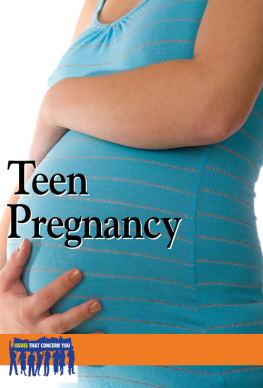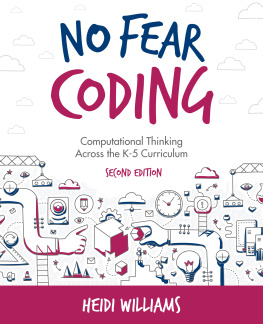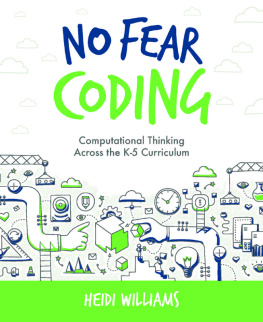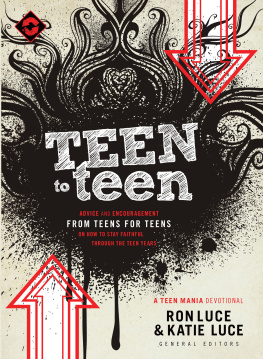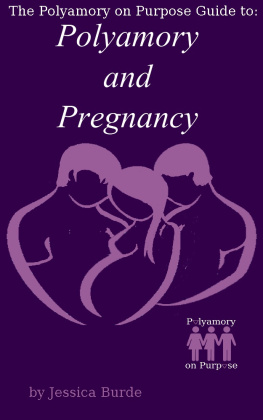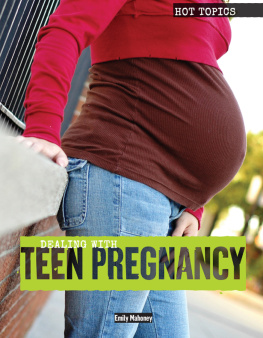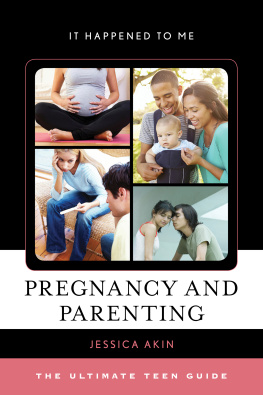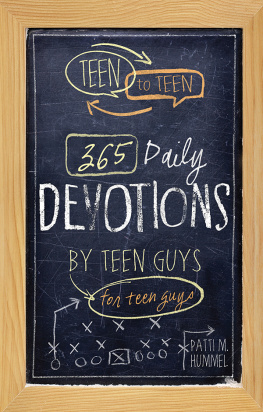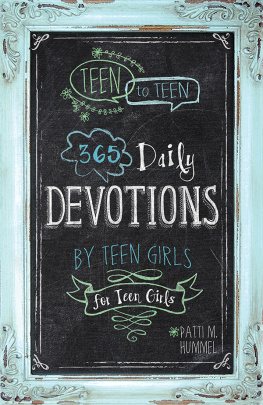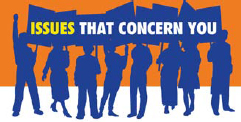Teen Pregnancy
Heidi Williams,Book Editor
Christine Nasso, Publisher
Elizabeth Des Chenes, Managing Editor
2010 Greenhaven Press, a part of Gale, Cengage Learning
Gale and Greenhaven Press are registered trademarks used herein under license.
For more information, contact:
Greenhaven Press
27500 Drake Rd.
Farmington Hills, MI 48331-3535
Or you can visit our Internet site at gale.cengage.com
ALL RIGHTS RESERVED.
No part of this work covered by the copyright herein may be reproduced, transmitted, stored, or used in any form or by any means graphic, electronic, or mechanical, including but not limited to photocopying, recording, scanning, digitizing, taping, Web distribution, information networks, or information storage and retrieval systems, except as permitted under Section 107 or 108 of the 1976 United States Copyright Act, without the prior written permission of the publisher.
For product information and technology assistance, contact us at
Gale Customer Support, 1-800-877-4253
For permission to use material from this text or product, submit all requests online at www.cengage.com/permissions
Further permissions questions can be e-mailed to
Articles in Greenhaven Press anthologies are often edited for length to meet page requirements. In addition, original titles of these works are changed to clearly present the main thesis and to explicitly indicate the authors opinion. Every effort is made to ensure that Greenhaven Press accurately reflects the original intent of the authors. Every effort has been made to trace the owners of copyrighted material.
Image copyright Opla, 2009. Used under license from Shutterstock.com
LIBRARY OF CONGRESS CATALOGING-IN-PUBLICATION DATA
Teen pregnancy / Heidi Williams, book editor.
p. cm. -- (Issues that concern you)
Includes bibliographical references and index.
ISBN 978-0-7377-4498-9 (hardcover)
1. Teenage pregnancy--Juvenile literature. 2. Sex instruction for teenagers--Juvenile literature. 3. Abortion--Juvenile literature. I. Williams, Heidi.
HQ759.4.T4218 2009
305.70835--dc22
2009018274
Printed in the United States of America
1 2 3 4 5 6 7 13 12 11 10 09
W hether debating free condoms in schools, the merits or failures of abstinence-only sex education, the morning-after pill, abortion, or parental notification rights, conservative and liberal viewpoints differ widely on issues concerning teen pregnancy. However, most share a similar mindset in one regardteenagers should definitely not have children.
The thinking is something like this. Like drinking, smoking, doing drugs, eating disorders, steroid use, and suicide, teen pregnancy is a parents worst nightmare, indeed a national public health crisis requiring targeted interventions: government-sponsored education sessions, parent meetings, fact sheets, public service announcements, and Web sites. After all, if teen births are associated with unhealthy babies, poverty, welfare, developmental delays, juvenile delinquency, dropping out of school, losing out on a higher education, doing jail time, and an overall bleak future, they must be stopped.
With this perception comes the assumption that teen pregnancies are mostly unintended, resulting from misinformation, teenage irresponsibility, or the teenage mindset of invincibility. After all, what teen would get pregnant on purpose, throwing away her future?
Some statistics do document this theory. According to one study by the National Campaign to Prevent Teen and Unplanned Pregnancy, about eight in ten teen pregnancies are unintended, and similarly, about 80 percent of both teens and adults believe that teen pregnancies prevent or delay teen parents from reaching their goals.
However, we are left asking, what about the other 20 percent? One in every five teen girls gets pregnant on purpose? Where is this happening and why?
One small town outside of Boston found itself asking this question when eighteen girls at one high school were discovered to be pregnant, four times the number from the year before. Reports of a pregnancy pact soon surfacedthe girls were trying to get pregnant on purpose and raise their babies together.
Furthermore, according to Emily M. White, a resident at Women and Infants Hospital in Providence, Rhode Island, in some demographic groups the numbers are probably even higher. A study of inner city teen girls reported that 42 percent of girls coming in for their first prenatal visits intentionally did not use birth control. Were these girls uneducated, rebellious, or pressured into sex by their boyfriends? No, none of the aboverather, according to the study, they were afraid that they would not be able to get pregnant.
While this fear may seem surprising, Kathryn Edin and Maria Kefalas make sense of it in their book Promises I Can Keep: Why Poor Women Put Motherhood Before Marriage. During the course of their research, through interviews with and by living among poor women, they came to understand that in these womens world children were viewed as a necessity, an absolutely essential part of a young womans life, the chief source of identity and meaning.
In an essay for the International Journal of Epidemiology, Janet Rich-Edwards provides another piece of the puzzle when she says, Where there is no opportunity, there is no cost to early pregnancy. In other words, if college or a career are not on a teens radar in the first place, having a baby while a teenager would probably not interrupt her dreams. On the other hand, to many poor girls, becoming a mother is the surest source of accomplishment within their reach, according to Edin and Kefalas.
Other teens, economically disadvantaged and not, are reaching for accomplishments and are focused on financial and educational success. Some of them are derailed by unintentional pregnancies; however, others are motivated by them. Thrown into a role of responsibility, they pursue their dreams more steadfastly instead of abandoning them.
Similarly, many pregnant teens without aspirations find themselves getting their act together and planning a future for the sake of their children. In one Australian study a teen mother comments, I wouldnt change anything because she [the baby] changed my life. I was living in [a town] and started to get into drugs really heavily. There was no hope for me and I just see that she saved my life.
Teen pregnancy is a complicated issue worthy of serious discussion by todays teens.
There is some research that indicates that this mother is not alone, that babies can motivate teens to find financial success. One study, conducted over several years and cited in a book titled Kids Having Kids, compared women from age sixteen to age thirty who had miscarriages to teens who gave birth. By their midto-late twenties, moms who had carried their babies to term and were raising them worked more and earned more than their counterparts who had miscarried and did not have children.

